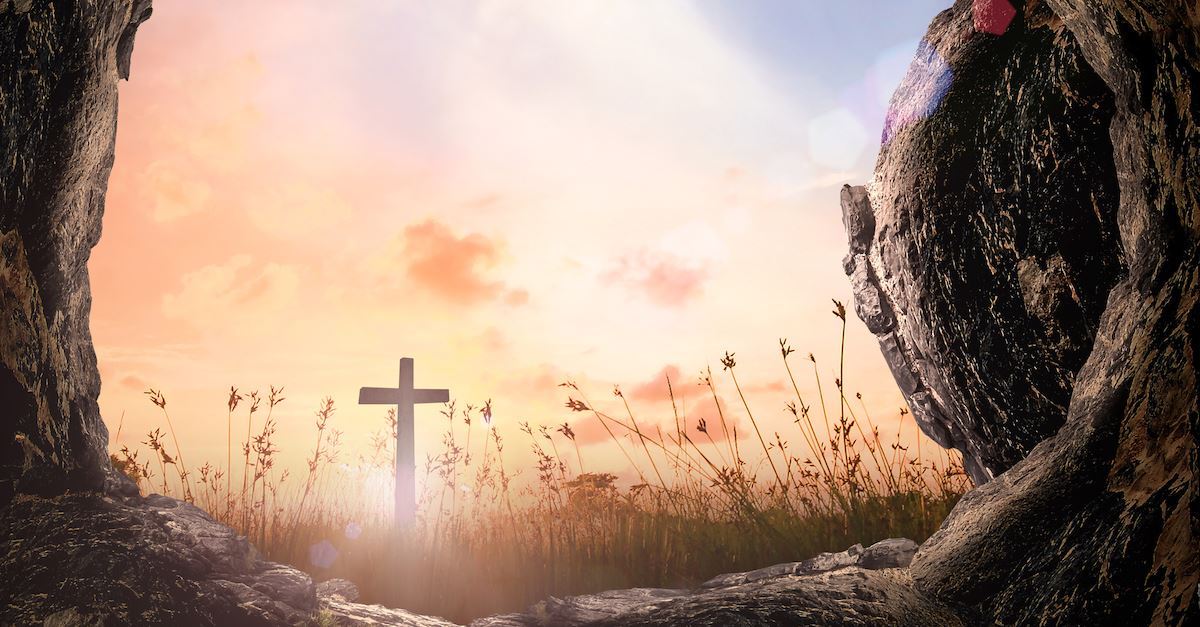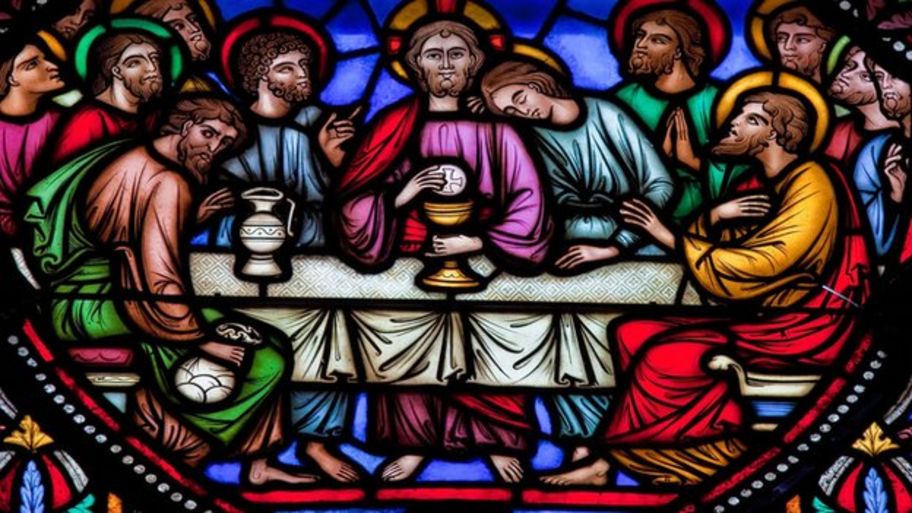+ Second Sunday of Easter - April 28, 2019 +
Beautiful Savior Lutheran, Milton
Series C: Acts 5:15-20; Revelation 1:4-18; John 20:19-31
In the Name of the Father and of the + Son and of the Holy Spirit. Amen.
You can tell a lot about someone by their breathing. Slow and methodical, like the Pharisees plotting and scheming to arrest Jesus. Halting or quick and syncopated like the disciples, hiding.in the upper room. Afraid. On edge. Anxious. Waiting. Before his conversion, St. Luke describes Saul as one who was breathing lies and murder.
The breath of our flesh, like that of the Pharisees, the disciples, and Saul, reveals our sin. Reveals death. Our mouth is an open grave, the Psalms say.
Our Lord’s breath, on the other hand, reveals not scheming. Not fear. Not death. God’s breath reveals who he is and what he has done for us. God’s breath bears his word and solemn promise. God’s breath brings redemption and forgiveness. God’s breath is life. Life for you in Jesus’ word. Life for you by his dying and rising. Life for you by his Spirit. Words. Spirit. Life. This is God’s breath for you. “My words are Spirit and they are life,” Jesus promises.
“Peace be with you,”Jesus declared to the disciples as he appeared to them alive again. “Peace be with you,” Jesus declares to you today.
God’s breath is life for you. And it’s been that way since the beginning.
By the word of the Lord the heavens were made, and by the breath of his mouth all their host, declares the Psalmist (Ps 33:6).
In Eden,the Lord God formed the man of dust from the ground and breathed into his nostrils the breath of life, and the man became a living creature.(Gen. 2:7)
In Eden,the Lord God formed the man of dust from the ground and breathed into his nostrils the breath of life, and the man became a living creature.(Gen. 2:7)
In the wilderness, the Lord rescued and redeemed his people by in the Red Sea crossing by his breath, as David declares:the channels of the sea were seen; the foundations of the world were laid bare, at the rebuke of the Lord, at the blast of the breath of his nostrils.
In Ezekiel’s valley of dry bones, the Lord declared Behold, I will cause breathto enter you, and you shall live. And I will lay sinews upon you, and will cause flesh to come upon you, and cover you with skin, and put breath in you, and you shall live, and you shall know that I am the Lord.” ...breath on these slain that they may live...
God’s breath is life for you.
The same is true in Jesus’ resurrection. To the disciples, huddled, anxious, and fearful in the upper room, Jesus brings his calming, comforting, consoling word and breath and spirit. Peace be with you.
To the apostle John, exiled on the island of Patmos, Jesus proclaims peace-filled, grace-filled, life-filled word and breath and spirit. “Fear not, I am the first and the last,18 and the living one. I died, and behold I am alive forevermore, and I have the keys of Death and Hades.
To us, in whatever fears we find ourselves. The everyday fears like finding a job, providing for daily bread, or just making rent without bouncing another check. Or the deeper, darker fears, like those the disciples experienced. Disbelief. Doubt. Despair. Sin. Death.
Whatever it is, Jesus joins us there. Jesus brings us his Word and breath and Spirit.
“Peace be with you. As the Father has sent me, even so I am sending you.” And when he had said this, he breathed on them and said to them, “Receive the Holy Spirit. If you forgive the sins of any, they are forgiven them; if you withhold forgiveness from any, it is withheld.”
God’s breath is life for you. And by his Word, Jesus brings the life he won for you on the cross to you.
By his breath, Jesus opens the kingdom of heaven, He forgives, He feeds, He renews, He strengthens the new You in Him. We may have many fears in this life. We may even be fearful of Sin, Death, and the Law camped out at our door. Fear not. Peace be with you. See the wounds, the Body, the Blood. Hear the cleansing words, “I forgive you all of your sins.” Receive the body and blood of Jesus that bears the Spirit-filled, life-giving words and breath of Jesus: given and shed for you for the forgiveness of all your sins. Remember that you are baptized with water and word - the same breath that breathed life into Adam makes you a new creation in Christ. And the same Spirit that hovered over the water of creation gives you the breath of the new heavens and the new earth.
“Peace be with you,” Jesus declares to us today. Shalom. Peace. All is well and right. This is the peace forgiveness of sins Jesus won for us. Just as the Lord filled Adam’s lungs with the breath of life, so too, by his Word Jesus fills us with his life-giving Spirit, making us a new man in him.
Just as Jesus redeemed and rescued Israel through the water and the word of the Red Sea, so too, he rescues and redeems us by the Water and Word of our great exodus of the font joining us to Jesus’ greater exodus through death and the grave.
Just as Jesus’ Word breathed on those dead, dry bones in Ezekiel, so too, he will breath on us, and all who are slain, and we shall be raised like he is, immortal, in the flesh, in life everlasting.
God’s breath is life for you. And with his breath, his Word, and His Spirit, Jesus sends us out again, just as he did his disciples. Here we receive his Word. here we are forgiven by his Word. Here we are sent out with his Word. To breath out his word of life with which he has filled our lungs, hearts, minds, and ears. Sins forgiven. Heaven opened. Life in the breath and promises of God. For you.
Alleluia! Christ is Risen! He is risen indeed! Alleluia!
In the Name of the Father and of the + Son and of the Holy Spirit. Amen.





